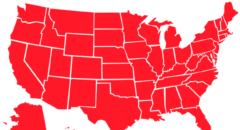- Replace packaged, processed, and refined foods with whole-natural foods.
- Vegetables and whole grains are the simplest way to achieve that. These meals include complex carbs that deliver energy slowly, stabilize blood sugar, and reduce cravings for harmful foods.
Reaching for Sugar
Avoid sugar for anxiety. While we know we should decrease sugar, anxiety often makes us desire sweets. Sugar temporarily stops stress hormone production in an anxious brain region, according to studies (cortisol). Sugar relieves anxiety, which makes us want it and grow dependent.
- Sugar consumption raises tension and anxiety.
- Sugar raises and drops blood sugar, causing irritation, nervousness, and poor mood, which may increase anxiety.
- Sugar may promote mood problems in men and women, according to a 2017 research.
- Sugar consumption from sweet food/beverages negatively impacts long-term psychological health, suggesting that a decreased sugar intake may improve mental health.
- Sugar has been related to inflammation, nutritional deficiencies, weight gain, diabetes, obesity, and heart, kidney, and liver illness. Several studies demonstrate that these factors may increase anxiety and other mental health concerns.
Eliminating sweet meals helps anxiety. Avoid cakes, cookies, chocolate, puddings, pastries, ice cream, milkshakes, waffles, and other apparent offenders. Read food labels since 75 percent of packaged goods have added sugar. Even healthy meals like granola bars, muesli, yogurts, and smoothies may have added sugar.
Fruit is tasty and nutritious. However, restrict fruit to two to three pieces per day. Fruit contains simple sugars that might raise blood sugar and anxiety. A balanced diet will help you eat more real foods and fewer processed and sugary meals! Healthy eating reduces sugar cravings. Recommendations:
- Eat two to three fewer sweet fruits daily. Apples, pears, green bananas, mangos, and papaya.
- Natural stevia is preferable.
- Squash and sweet potatoes might curb sugar cravings.
RELATED: 7 Ways to Help You Overcome Anxiety While Traveling
Not Getting Enough Fluids
Anxiety might increase if you don’t consume enough fluids. Stress from dehydration might lead to anxiety symptoms. In one research, restricting water intake decreased contentedness, serenity, good emotions, and vigor/activity, whereas increasing water consumption decreased weariness, confusion, and thirst.
Additionally, water calms. Dehydration also lowers mood, according to findings. Anger, perplexity, stress, and exhaustion may result from mild dehydration. That’s why keeping hydrated is critical for anxiety sufferers and your general health.
According to the U.S. National Academies of Sciences, Engineering, and Medicine, women require 11.5 cups (2.7 liters) of fluids daily. In comparison, males need 15.5 cups (3.7 liters). Females should drink 11 cups of liquids daily, while males should drink 15 cups. Thus, staying hydrated will prevent dehydration-related worry and reduce anxiety, according to Harvard Medical School.
Vegetables and fruit count as fluids. Organic loose-leaf herbal teas and water are ok. Herbal tea packets may include caffeine. Instead of drinking all your water or tea at once, sip it throughout the day.
Poor Eating Habits
Poor diets may increase anxiety. For instance, not eating enough vegetables, whole grains, and other natural whole foods, eating too many processed meals and beverages heavy in fat, salt, and/or sugar and low in dietary fiber, and not chewing your food correctly.
Poor eating habits might reduce your intake of vital nutrients such as carbs, protein, essential fatty acids, vitamins, and minerals needed for brain and neurological system health.
Nutrient deficiencies have been linked to mood and anxiety. Anxiety disorders and other mental health concerns are associated with








